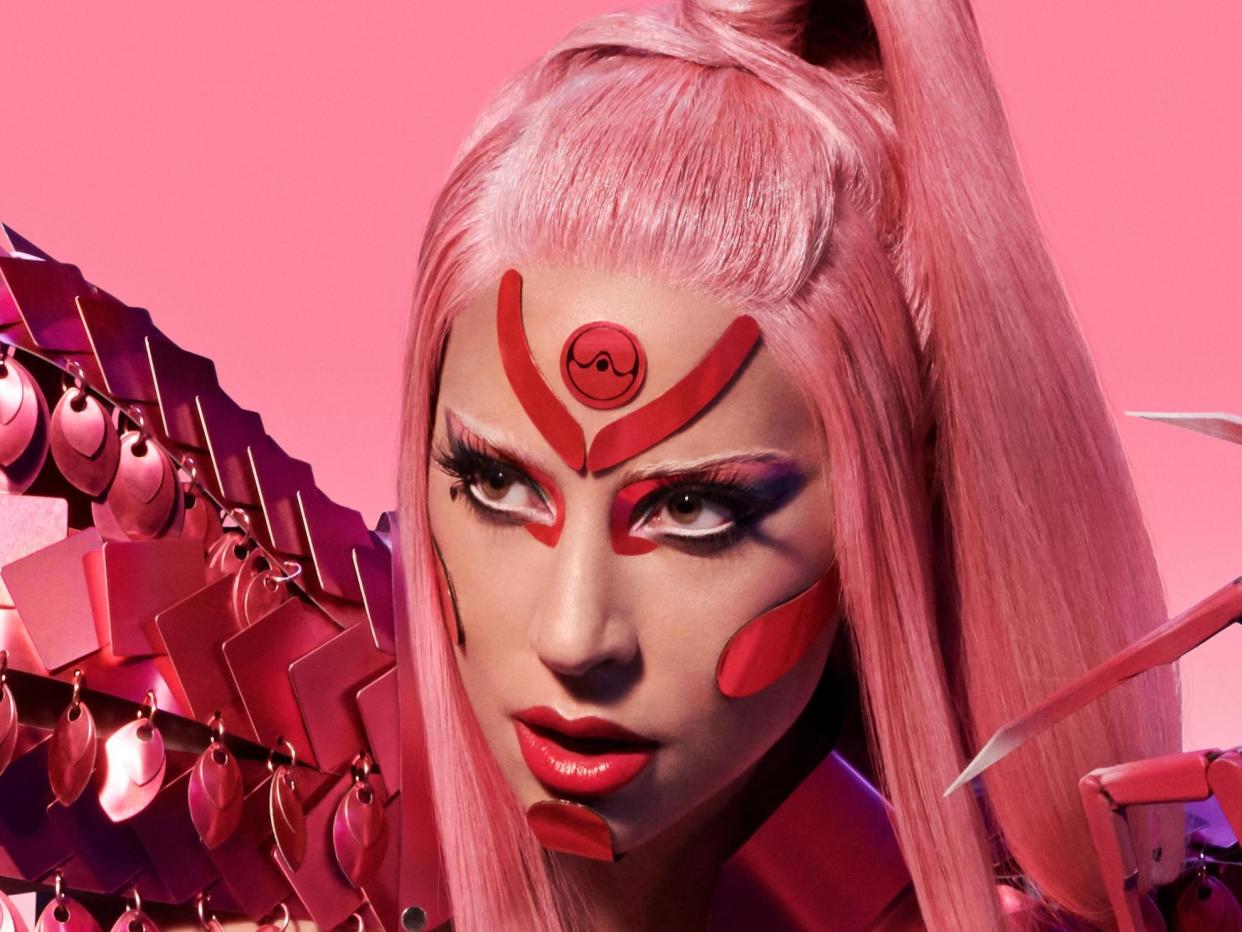Lady Gaga review, Chromatica: Big, brazen pop with an introspective side

Few artists have had as many eras as Lady Gaga. There was the pop provocateur era, when she would wear dresses made of raw beef and be carried along the red carpet in an egg. There was the jazz era, when after the relative flop of her third album – Artpop sold 2.5 million copies, by her standards a commercial disappointment – she stopped chasing the charts to make a record with Tony Bennett. There was the country-pop era, when she became so obsessed with her mother’s dead sister (who died before Gaga was born) that she made an entire album about her. And then there was the Oscars era, when she followed in the footsteps of Janet Gaynor, Judy Garland and Barbra Streisand to take on the lead role in A Star is Born (2018). Not for nothing is the artist born Stefani Germanotta often mentioned in the same breath as David Bowie.
So which era will Chromatica come to represent? Musically speaking, the album is a return to the kind of big, brazen pop that Gaga has barely touched since 2013 (with the possible exception of “Perfect Illusion”, the weak outlier of Joanne). Co-written and produced by BloodPop, it’s named Chromatica because “it’s all the colours, all the sounds”, the 34-year-old told Zane Lowe. “We’re talking about inclusivity and life.” All the sounds indeed. Rejecting the sparse, passive-aggressive thumps that have proliferated pop’s mainstream while Gaga’s been away from it, the album has beats that wallop you round the head. For 16 tracks, it barely takes a breath.
There are hints of acid house to songs like “Free Woman”, which sounds not unlike Robyn & La Bagatelle Magique’s “Love is Free”, while “Alice” is electronica by way of garage. Elsewhere, Gaga finds humour in the hyper-theatrical: “We can party like it’s BC/ With a pretty, 16th-century smile,” she sings on “Babylon”, which samples New Order and Ozio and wouldn’t sound out of place on RuPaul’s Drag Race.
Despite its extroverted sound, Chromatica is a deeply introspective album. These are anthems of self-doubt, self-reflection, self-destruction and self-reclamation, sung by someone who has lived through sexual assault, chronic illness and debilitating depression. “My biggest enemy is me/ Turnin’ up emotional faders,” she sings on “911”, “Keep repeating self-hating phrases/ I have heard enough of these voices.” On “Plastic Doll”, which laments the way adoration spills over into objectification once you become public property, she sings, “I've got blonde hair and cherry lips/ I'm state of art, I'm microchipped/ Am I your type? Am I your type?”
Her voice is as rich and strident as ever, its enunciation pure Broadway. “You love the paparazzi, love the fame/ Even though you know it causes me pain,” she sings on “Fun Tonight”. The more desperate the lyrics, the more the melody blossoms into life. “ I feel like I'm in a prison hell/ Stick my hands through the steel bars and yell.” There is an “are you not entertained?” vibe to the whole thing.
For a global superstar who is not short of privilege, Gaga does tend towards solipsism. ”Don’t become maudlin over all this,” her grandmother warned her in the 2017 documentary Gaga: Five Foot Two, gently reminding her that Joanne had been dead for “over 40 years”. But where on that album, Gaga was appropriating, to a degree, the trauma of someone she had never known, here she is taking ownership of her own painful experiences.
Ariana Grande collaboration “Rain on Me” manages to make light work of a somewhat clumsy metaphor – the rain represents tears, she told Vulture, but also alcohol. “I’d rather be dry/ But at least I’m alive,” goes the house-pop chorus. It is a sort of defiant shrug; things may not be great, but they could be worse.
Chromatic is an extravagant, sometimes even overblown album – but I suspect it will keep revealing itself over time. And by that point, she’ll be onto the next era.


